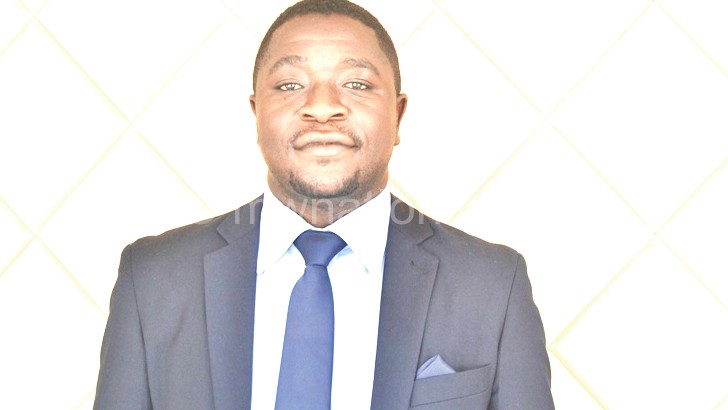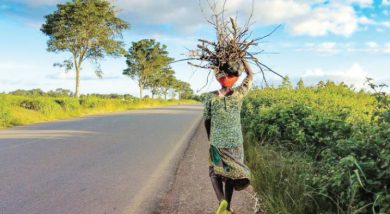Cycling for Falesi’s future
Afete Kadewere is used to being insulted as if he were a circus nut for carrying her 17-year-old disabled daughter on a bicycle. But, he says, he “will never be reconciled to it”.
Kadewere says this is what you face as a parent to a child with special needs in an intolerant society.
“When cycling through the streets, I feel hundreds of eyes watching and judging us. It is understandable when those looking are children, as children are always curious. But most of these are adults who look at my daughter and I as if they were watching some kind of drama performance,” he laments.
Kadewere describes this as awful.

“I already have so much misery and all odds seem to be stacked against me. But I can challenge everyone that I don’t feel perturbed at such rudeness because I want my daughter to realise her dream just like any other normal child,” says Kadewere.
The man has been doing what most fathers in his shoes rarely do—take his Standard Five daughter, Falesi, every day on his bicycle to Kaphatenga Primary School in Salima. This he has done from the first day Falesi enrolled in Standard One at the school.
Falesi, fifth born to 52-year-old Kadewere, had her lower limbs paralysed at the age of one.
“When she was born, she looked a normal and healthy baby girl. However, a year later, we realised that she was not developing and growing properly and it quickly became clear that she could neither talk or walk,” he explains.

The parents then took their child to Beit Cure Hospital in Blantyre.
“We were told nothing could be done to help her. It was a frustrating realisation and her mother used to cry day and night. Upon realising how psychologically devastated she was, I took over full responsibility of feeding, bathing and even taking her to the toilet and school. My greatest wish is to see her attain the highest levels of education,” affirms Kadewere.
To underscore his drive, Kadewere adds that he does not worry about the fact that the time he devotes to his daughter has, to some extent, strained his relationship with some community members.
“Only a few individuals understand me, but I will carry on until my daughter and I realise our shared dream which we discuss every morning and afternoon on our way to and from school,” he says.
He cycles 16 kilometres daily to ensure his daughter has access to education.
“I know she will be more discriminated against if she fails to excel in school.
“When I am not available, which is very rare, I hire a bicycle taxi so that my daughter doesn’t miss classes,” says Kadewere.
Falesi, who enrolled for Standard One at 11 due to her condition, says she wants to become a nurse.
“I have consistently been in the top 10. Last academic term, I scooped position seven. But our school lacks disability-friendly services and infrastructure. This sometimes affects my concentration in class as it puts me under stress,” she says.
Parents of Disabled Children in Malawi (Podcam) advocacy officer Msenga Mulungu observes that children with special needs often lead difficult lives due to communities’ lack of understanding, as experienced by Falesi and her father.
“This is why we recommend that inclusive education, without the involvement of parents, would be a nightmare. We also encourage parents with special needs children to join support groups to gather more skills and knowledge on how to take care of disabled and special needs children and reduce the children’s chances of being poor, unemployed and landless in adult life,” says Mulungu.
Ministry of Education, Science and Technology spokesperson Manfred Ndovi says his ministry will soon be implementing a programme in which special needs teachers will be visiting schools to assess situations and conditions disabled learners are in.
“Those who qualify will be enrolled in a special needs institute for specialised attention and education. The ministry is also lining up several policies and initiatives to support inclusive education which specifically caters for special education learners,” he says.





